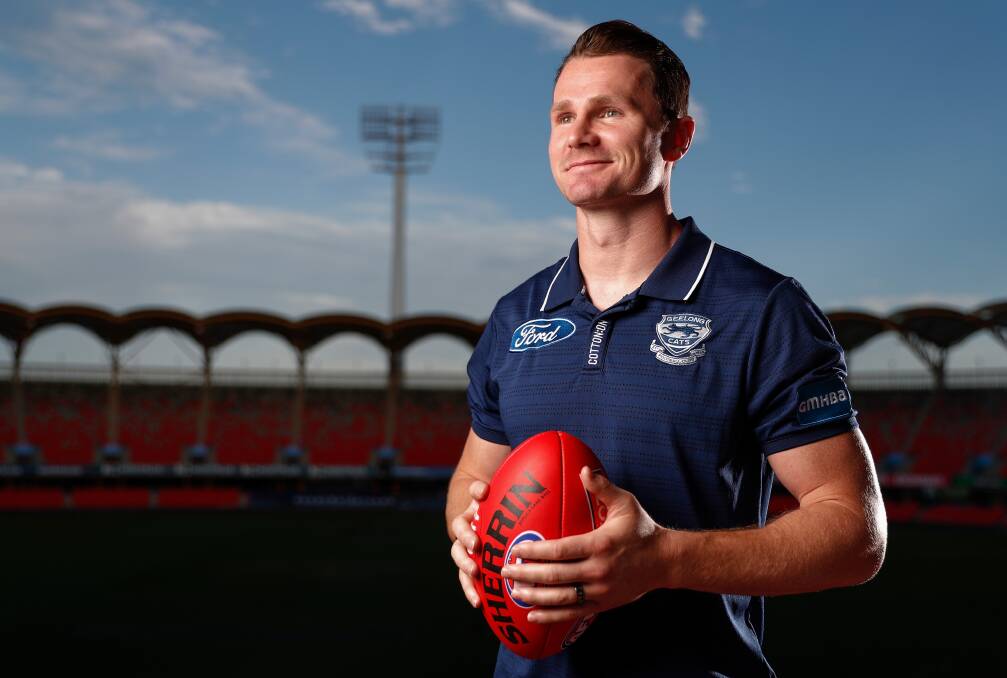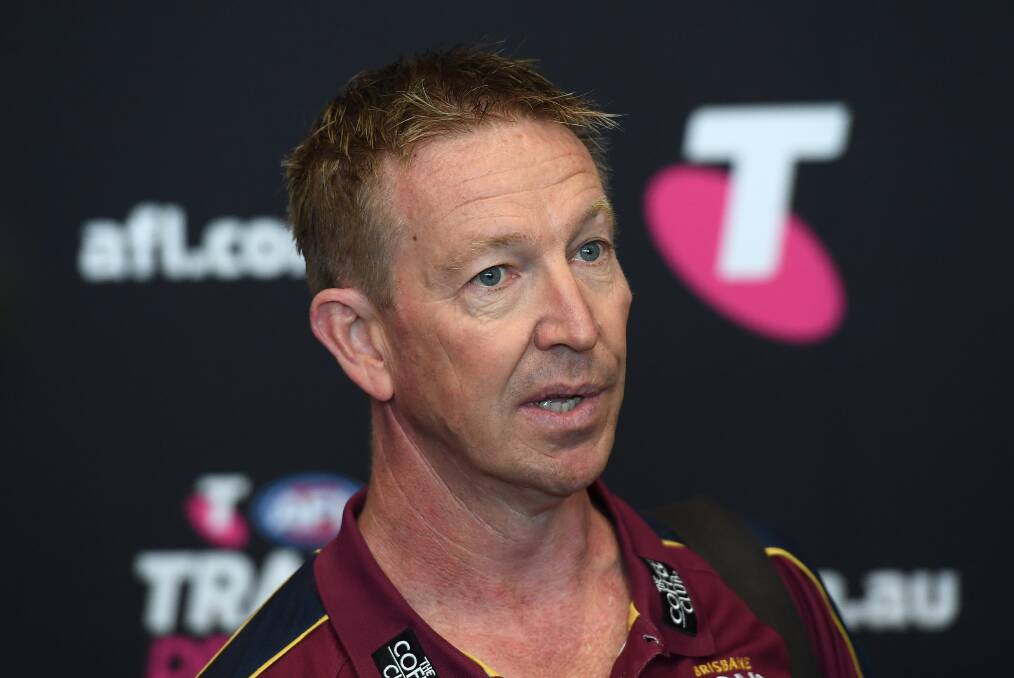
The AFL's decision to tinker with the rules again for next season's competition should have gone much further.
Subscribe now for unlimited access.
or signup to continue reading
At least sanity appears to have prevailed on several fronts - quarters are set to return to 20 minutes plus time-on after being reduced to 16 minutes to provide a more flexible fixture by necessity this year, and each team will play 22 games in the premiership season to determine the final eight.
Thankfully, there was no discussion about abolishing the centre bounce, a unique component of the game, ignoring the constant pleas from media commentators such as Dwayne Russell.
But the AFL missed an opportunity with the retention of the contentious 'third-up' rule.
Introduced in 2017, the rule says only nominated ruckmen are permitted to compete at a contest for a throw-in or ball-up, with players no longer allowed as a third man up.
This process slows the game down unnecessarily and should be sorted out by players on the field, not umpires.
If a third man goes up in the contest, it should be a free kick against the offending team.
At stoppages, umpires should throw the ball up immediately to keep the game moving.
But the changes are steps in the right direction, designed to break down teams' defensive capabilities and create more scoring by opening up the game.
Richmond great and media veteran Kevin Bartlett, a long-time proponent of fewer interchange rotations, would be happy with the downward trend but the 75 per team next season would not satisfy him.
Interchange rotations have been at 90 per team since 2016, down from 120 previously, but 'KB' has argued for no more than 40, despite the howls of protest from players led by AFLPA president Patrick Dangerfield.
When players are fatigued, in theory, the game opens up, the chance of soft-tissue injuries decrease and scoring becomes easier.
While other adjustments regarding players' movement while standing on the mark and location of the mark for kick-ins should have positive effects, the change in the new VFL and East Coast second-tier competition will be closely monitored.
A minimum of three players from either team will have to be inside each 50-metre arc, including one per team in each goalsquare, at all kick-ins and boundary throw-ins or penalties will apply.
At AFL level, the 6-6-6 rule at centre bounces has worked well and this is an extension of that. The next step, if this does not open up the game, could be zones - maybe a bridge too far in the eyes of traditionalists.
Maybe the AFL could also look at introducing bonus points for teams scoring more than 100 points in a game.
With games played in different states and venues on various days, the vagaries of weather conditions would have to be taken into account in calculating bonus points.
For example in inclement weather, teams might have to score only 70 points to earn a bonus point, but surely the right formula could be found to encourage higher scores.
Don't discard older coaches
David Noble's diverse football experience should stand him in good stead as he takes on the tough job of rebuilding North Melbourne.

Noble knows the fundamentals of AFL clubs better than most, his latest task working alongside Chris Fagan to steer Brisbane's rise in the past two seasons, and he will be missed by the Lions.
The Kangaroos had gone down the path of appointing a young, rookie senior coach in Rhyce Shaw in 2019 and the pressures in this season affected by COVID-19 proved too great, so it was apparent to North's board that the club needed an older, steady hand.
The Kangaroos are in a rebuilding phase, with a young group and an experienced mentor is the best option to guide them through the next two to three years.
It was pleasing to see that Noble's age (53) was considered an asset and not a hindrance.
I believe there are two other older coaches with proven records - Gary Ayres and Mark Williams - who should not be discarded simply because they are too old and have not coached at AFL level for a long time.
Ayres and Williams have coached in the VFL and are excellent at nurturing and developing talented young players.
Ayres, 60, coached Geelong into an AFL grand final and his last senior coaching job was at Adelaide 16 years ago. But he has coached with distinction at Port Melbourne since 2008, guiding the Borough to two premierships.
Williams, 62, coached Port Adelaide to its first AFL premiership in 2004 and has been involved as an assistant at several other clubs including GWS and Richmond.
But St Kilda's Brett Ratten proved this year that senior coaches are often more accomplished and better credentialed the second time around.
Rugby league provides a strong case for the value of older, experienced coaches.
Queensland's State of Origin coach Wayne Bennett is 70 and Melbourne Storm's three-time premiership coach Craig Bellamy, 61.
In other sports overseas, such as Premier League soccer in the UK and the National Football League in the US, there are many examples of successful older coaches, so Ayres and Williams deserve consideration for another chance.
Email: howardkotton11@gmail.com; Twitter: @hpkotton59.

- This article is supported by the Judith Neilson Institute for Journalism and Ideas.

